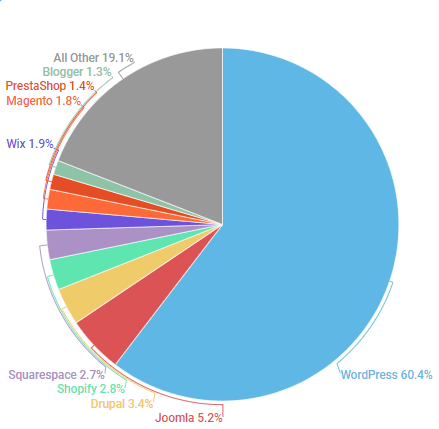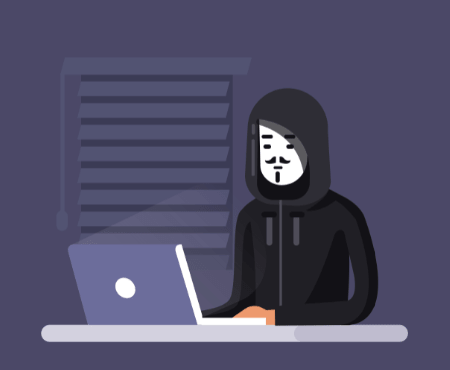WordPress website security is a topic of enormous importance for every website owner.
As of March 2019 (according to research by w3techs ) – WordPress is the absolute most popular content management system (CMS), WordPress occupies 60.4% of all 1 sites that use any content management systems (a total of 33.5% of all existing sites in the world).

There is a myth that circulates around the web that says that WordPress is a system that is not secure enough that invites a lot of attack / hacking attempts, but as can be concluded from the numbers presented – the reason that WordPress brings with it security risks and increases the chance of a hacking attempt is because WordPress occupies such a large volume of the market, therefore the great desire of the hackers is to gain control over a large amount of websites by a single hack so that the investment in hacking it “pays off” for them much more..
It can be said with certainty that WordPress as a system – and especially the core files are very well secured , are regularly maintained, receive updates and are improved from time to time by hundreds of programmers who are part of the open source community. A large percentage of security breaches are usually caused by human error, whether it’s a misconfiguration or improper maintenance of WordPress, in this guide we’ll share all the top security tips in the context of WordPress website security.
It is important to take the issue of security seriously.
Just to clarify: Google adds around 20,000+ sites to the blacklists for malware every week, and about 50,000+ sites for phishing.
You should make sure that your site remains protected and safe – follow the following article that explains what can be done to strengthen the security of WordPress sites by a few simple actions that will give you peace of mind in the long term.
* This guide is written in direct reference to WordPress sites that are installed on Linux servers, but may also be suitable for Windows servers.
1. Regular code updates to WordPress and its components
WordPress is a free content management system developed by a community of open source programmers.
The management system includes different groups of components such as core code, design templates and plugins that are installed by the users.
Core code update
With each version release, WordPress programmers improve the system in various ways, add new features, improve performance and increase the capabilities of existing features in order to stay up to date with technology standards.
In addition, bugs that were found in the period of time between updates are fixed, often the version updates include security improvements.
Regular updating of your WordPress site will help you prevent security risks on your site, and add new features and capabilities.
By default, WordPress automatically installs minor version updates, but for major version updates you have to activate the update manually (on the system upgrades screen).

Because WordPress is an open source system available to anyone. Old and out-of-date versions of WordPress that contain security weaknesses are famous around the web and are easy prey for hackers, who tend to search for and attack old versions that contain security holes. For example, Sucuri recently published an official article about an XSS security breach that was fixed in WordPress version 5.1.1 –
if your website’s WordPress version is not up to date. You are exposed to many more hacks and this is because the way to hack these versions is known and it is a much simpler practice than finding new security holes in the updated versions.
In addition, it is important to remember and emphasize – never make changes to the WordPress core files. Such a change will prevent you from making regular updates to the WordPress system for fear of losing the changes made, which will directly harm the security of your website and lead to future security risks and a host of other problems.
